This article was co-authored by Tu Anh Vu, DMD. Dr. Tu Anh Vu is a board certified dentist who runs her private practice, Tu's Dental, in Brooklyn, New York. Dr. Vu helps adults and kids of all ages get over their anxiety with dental phobia. Dr. Vu has conducted research related to finding the cure for Kaposi Sarcoma cancer and has presented her research at the Hinman Meeting in Memphis. She received her undergraduate degree from Bryn Mawr College and a DMD from the University of Pennsylvania School of Dental Medicine.
There are 11 references cited in this article, which can be found at the bottom of the page.
This article has been viewed 49,291 times.
Everyone loves to have a bright, beautiful, and healthy smile. “Gingival recession,” or receding gums, is the movement of your gums such that it leaves the root area of your teeth exposed and visible. Receding gums usually occur in adults over the age of 40. It poses a problem when it compromises the appearance of your smile and increases your teeth's sensitivity to touch and temperature. To prevent receding gums, you need to maintain healthy dental hygiene and make some lifestyle choices.[1]
Steps
Preventing Periodontal Disease
-
1Visit your dentist regularly. Periodontal disease is a leading cause of receding gums. See your dentist every six months for cleanings and check-ups. If you haven't had it done, ask about fluoride treatment. Having regular professional care can help prevent diseases of your mouth and gums.[2]
- Gingivitis, periodontitis, and plaque all cause inflammation in your gums, which causes gingival recession. Your dentist can help you prevent these or treat them before they get worse.
- Having misaligned or crowded teeth can cause or worsen gum recession and may warrant orthodontic treatment.
-
2Consult a periodontist. If you have dental problems that your regular dentist can't fix, they can likely refer you to a periodontist. Periodontists specialize in preventing and treating periodontal disease, and may be better equipped to help you with gingival recession.[3]Advertisement
-
3Brush your teeth twice a day. Take the time to thoroughly brush your teeth two times per day. Brush in the morning when you wake up, and before bed. Use toothpaste that contains fluoride. Use a soft-bristled toothbrush and avoid hard-bristle brushes.[4]
- Consider purchasing an electric toothbrush, which may reduce plaque more than brushing with a regular toothbrush.
- Be sure to brush the inside, outside, and tops (chewing surface) of your teeth. Brush your tongue, too.
-
4Use proper tooth brushing techniques. A big mistake people often make is brushing their teeth too hard. Brushing in a rigorous horizontal (back and forth) manner can cause trauma to your gums and can wear away the enamel, causing gum recession.[5] Ask your dentist to show you the right way to brush your teeth.
- Tilt the head of your toothbrush at a 45° angle towards your gum line. Use small circular vibratory strokes. Brush with gentle pressure. The bristles of your toothbrush can actually go 1 mm below your gum line to remove plaque that gets stuck there. Do about 20 strokes in one position before moving on to the other surfaces of your teeth.[6]
- After doing 20 strokes, do a sweeping motion towards the biting surfaces of your teeth to move the plaque out. Do a back and forth horizontal movement to clean the biting surfaces of your teeth.
-
5Keep your toothbrush clean. Always rinse your toothbrush after you brush your teeth and store it upright – not lying down in a drawer or on a counter. Do not keep your toothbrush in a closed container often, because this can encourage bacteria to grow. Keep each toothbrush in your household separate.[7]
- Get a new toothbrush every 3-4 months, or if the bristles get frayed.
-
6Floss your teeth every day. Flossing should go hand in hand with brushing.[8] Flossing further removes plaque that was not reached by the bristles of your toothbrush.
- For effective flossing, get an elbow-length string of floss and wrap both ends around your middle fingers. Leave an inch of floss that you can work with.
- Starting from the back tooth, slide the floss very gently in between your teeth with the help of your index fingers. Do not force the thread to go down, which can cause damage to your gums.
- Repeat the same procedure for all your teeth, taking care not to damage your gums. If your gums bleed when you floss, you need to be gentler.
Making Lifestyle Changes
-
1Stop smoking. Smoking can cause a lot of general health problems. It can also cause a lot of dental problems, one of which is receding gums.[9] Put in the effort to stop smoking now to improve your oral health – and your breath!
- While you're trying to quit, try to use nicotine substitutes such as nicotine patches.
-
2Stop grinding your teeth. Grinding your teeth, or bruxism, is common – you may not even know that you do it, especially at night. This not only strains the muscles involved in chewing, but also leads to gum recession.[10] Learn to stop grinding your teeth by trying some simple techniques:
- See your dentist to get a night guard that stops you from grinding your teeth while you sleep.
- Consciously try to unclench your jaw muscles during the day.
- Stay away from caffeine and alcohol, especially near bedtime.
- Lower your stress with meditation or a soothing bath before bed.
-
3Do not get oral piercings. Metal jewelry placed inside your mouth does not only cause problems with your teeth but also affects your gums. The barbel of tongue and lip piercings tends to hit the gum line repeatedly, and the trauma caused by this ultimately leads to gum recession.[11]
- If you decide to get an oral piercing, make sure that the piercing shop observes excellent sanitary conditions.
-
4Make sure your dentures fit properly. Gum recession can be caused by partial dentures that fit poorly. If your dentures feel loose or rub on parts of your gums, see your prosthodontist to have your dentures relined (refitted properly).[12]
Expert Q&A
-
QuestionWill brushing too hard cause recessed gums?
 Tu Anh Vu, DMDDr. Tu Anh Vu is a board certified dentist who runs her private practice, Tu's Dental, in Brooklyn, New York. Dr. Vu helps adults and kids of all ages get over their anxiety with dental phobia. Dr. Vu has conducted research related to finding the cure for Kaposi Sarcoma cancer and has presented her research at the Hinman Meeting in Memphis. She received her undergraduate degree from Bryn Mawr College and a DMD from the University of Pennsylvania School of Dental Medicine.
Tu Anh Vu, DMDDr. Tu Anh Vu is a board certified dentist who runs her private practice, Tu's Dental, in Brooklyn, New York. Dr. Vu helps adults and kids of all ages get over their anxiety with dental phobia. Dr. Vu has conducted research related to finding the cure for Kaposi Sarcoma cancer and has presented her research at the Hinman Meeting in Memphis. She received her undergraduate degree from Bryn Mawr College and a DMD from the University of Pennsylvania School of Dental Medicine.
Board Certified Dentist Yes, brushing too hard can lead to recession of your gums. You don't need to scrub your teeth hard; it should really be more of a smooth, circular motion. Think of it sort of like you're sweeping a floor. If you scrape the broom against the floor, you may scratch the wood! You don't need to brush extremely hard to get clean teeth.
Yes, brushing too hard can lead to recession of your gums. You don't need to scrub your teeth hard; it should really be more of a smooth, circular motion. Think of it sort of like you're sweeping a floor. If you scrape the broom against the floor, you may scratch the wood! You don't need to brush extremely hard to get clean teeth. -
QuestionWill gums stop receding after a deep root cleaning?
 Cristian Macau, DDSDr. Macau is an oral surgeon, periodontist, and aesthetician at Favero Dental Clinic in London. He received his DDS from Carol Davila University of Medicine in 2015.
Cristian Macau, DDSDr. Macau is an oral surgeon, periodontist, and aesthetician at Favero Dental Clinic in London. He received his DDS from Carol Davila University of Medicine in 2015.
Doctor of Dental Surgery In most cases yes, but you need to closely follow the indications given by your dentist or surgeon. A proper hygiene is essential and if the receding doesn’t stop, then you will need flap surgery.
In most cases yes, but you need to closely follow the indications given by your dentist or surgeon. A proper hygiene is essential and if the receding doesn’t stop, then you will need flap surgery.
References
- ↑ https://www.ncbi.nlm.nih.gov/pmc/articles/PMC4944726/
- ↑ Tu Anh Vu, DMD. Board Certified Dentist. Expert Interview. 10 April 2020.
- ↑ https://www.perio.org/consumer/periodontist2.htm
- ↑ Tu Anh Vu, DMD. Board Certified Dentist. Expert Interview. 10 April 2020.
- ↑ http://jada.ada.org/article/S0002-8177(14)63227-X/abstract
- ↑ https://www.mouthhealthy.org/en/az-topics/b/brushing-your-teeth
- ↑ https://www.cdc.gov/oralhealth/infectioncontrol/faqs/toothbrush-handling.html
- ↑ https://www.mouthhealthy.org/en/az-topics/f/flossing-steps
- ↑ https://www.cdc.gov/tobacco/campaign/tips/diseases/periodontal-gum-disease.html
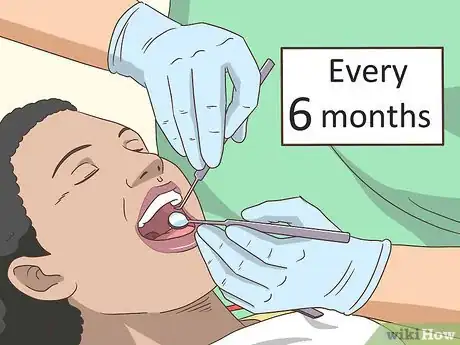

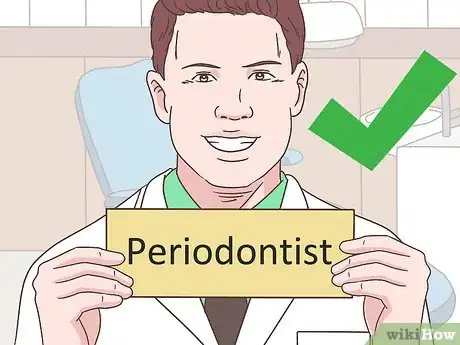
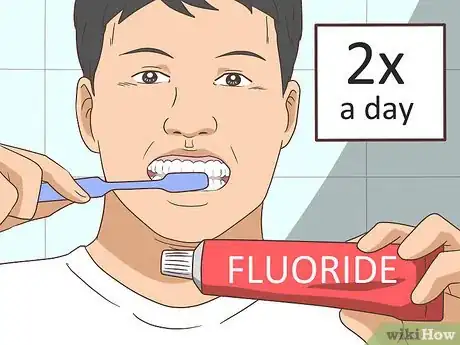
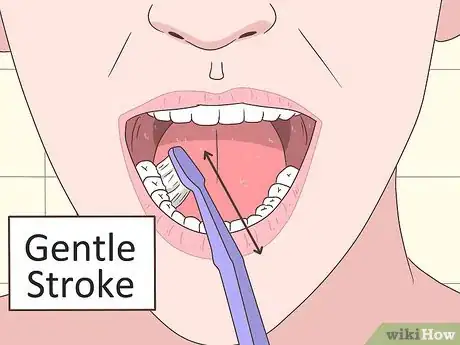
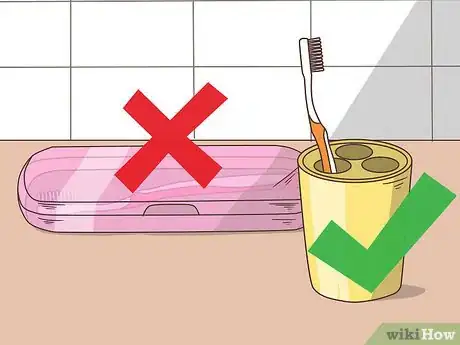
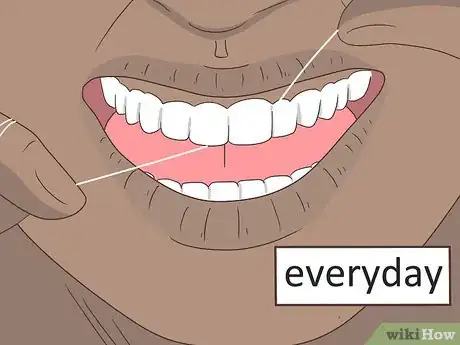
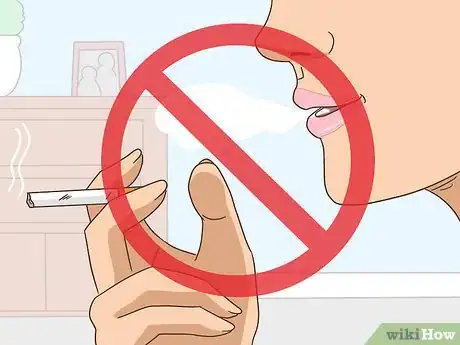
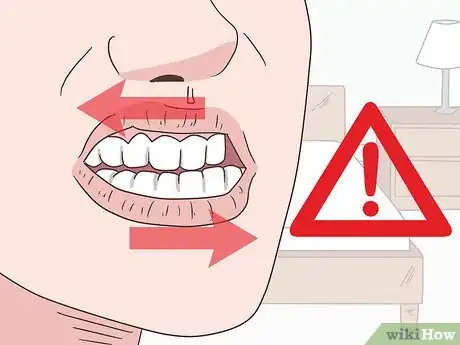
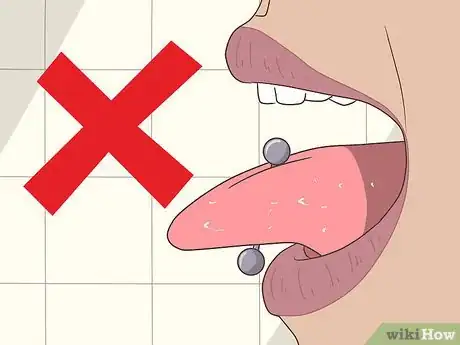
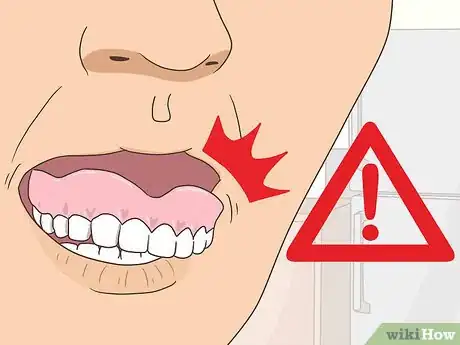

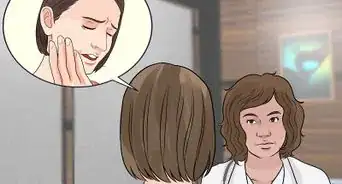

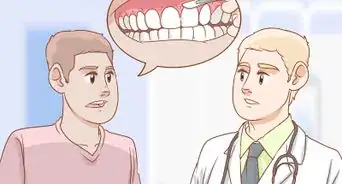
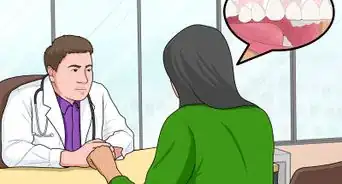
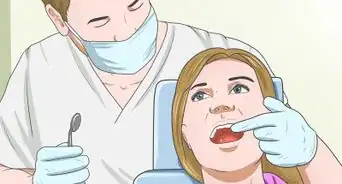
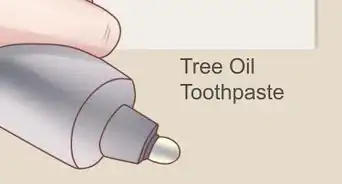
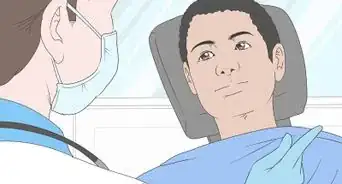

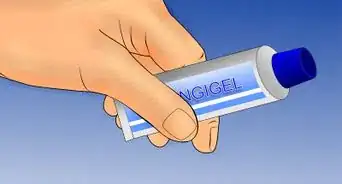
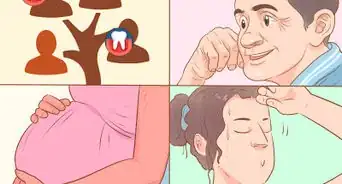
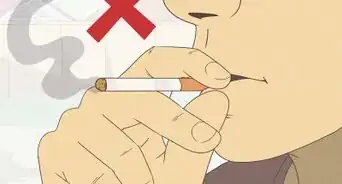
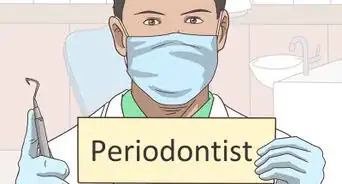









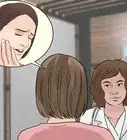
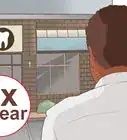
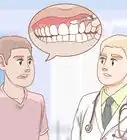



































Medical Disclaimer
The content of this article is not intended to be a substitute for professional medical advice, examination, diagnosis, or treatment. You should always contact your doctor or other qualified healthcare professional before starting, changing, or stopping any kind of health treatment.
Read More...